Explore the Best AI Image Gallery

Quantum Leap for Creativity: Exploring the Transformative Power of Quantum Computing
The world of creativity is on the cusp of a paradigm shift, driven by the emergence of quantum computing. This revolutionary technology, harnessing the enigmatic principles of quantum mechanics, promises to unlock unprecedented possibilities for artists, designers, and innovators across diverse fields. From generating novel art forms to accelerating design processes, quantum computing has the potential to redefine the very essence of creative expression.
Unleashing New Artistic Frontiers
Quantum computers possess an inherent ability to explore vast solution spaces with unparalleled speed and efficiency. This capability opens doors for artists to experiment with complex algorithms and generative models, resulting in the creation of entirely new art forms. Imagine AI-powered tools that can compose symphonies, design intricate sculptures, or even generate breathtaking visual landscapes based on quantum simulations.
- Generative Art: Quantum algorithms can be used to create stunningly intricate and unique artworks, pushing the boundaries of traditional artistic expression.
- Interactive Experiences: Quantum computing can power immersive and interactive art installations, responding to viewers movements and emotions in real-time.
- Personalized Creations: Imagine bespoke artwork generated specifically for each individual viewer, tailored to their preferences and tastes.
Accelerating the Design Process
Beyond the realm of fine art, quantum computing holds immense potential for revolutionizing design processes across various industries. Architects can leverage quantum simulations to optimize building structures, engineers can explore novel materials and designs, and fashion designers can create innovative garments with intricate patterns and textures.
- Materials Science: Quantum simulations can help researchers discover new materials with exceptional properties, leading to breakthroughs in fields like aerospace, electronics, and medicine.
- Structural Design: Architects and engineers can use quantum computing to design more efficient and resilient structures, minimizing material usage and optimizing performance.
- Personalized Products: Quantum algorithms can enable the creation of customized products tailored to individual needs and preferences, revolutionizing mass customization.
Navigating Ethical Considerations
As with any powerful technology, quantum computing raises important ethical considerations that must be addressed thoughtfully. Ensuring responsible development and deployment is crucial to harnessing its transformative potential for good.
- Bias and Fairness: Quantum algorithms can inherit biases present in the data they are trained on. Its essential to mitigate bias and promote fairness in the design and application of these systems.
- Intellectual Property: The nature of quantum-generated creativity raises questions about ownership and intellectual property rights. Clear guidelines and regulations are needed to address these complexities.
- Accessibility and Equity: Access to quantum computing resources should be equitable, ensuring that the benefits of this technology are shared by all, not just a select few.
The Quantum Future of Creativity
Quantum computing is poised to usher in an era of unprecedented creativity. Its ability to explore vast solution spaces, generate novel ideas, and accelerate design processes will undoubtedly transform the way we create, experience, and interact with art and design. As this technology continues to evolve, its essential for artists, designers, policymakers, and researchers to collaborate closely to shape its future responsibly and ethically, ensuring that quantum computing empowers us all to unlock our full creative potential.

](https://images.ai-img.art/thumbnails/150/3521ea1bce510dbac19d74a3e037e7179b754ae98e8a44c08863e51468c18caa.webp)
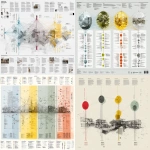
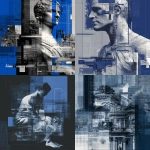

](https://images.ai-img.art/thumbnails/150/469c20665b824a8c49e8b66856a2f9843e7a36c40760ace1e7fd5f2125a32e25.webp)

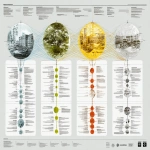









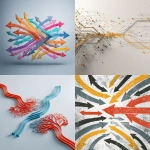



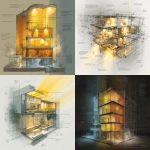



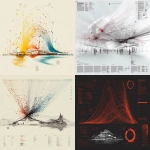
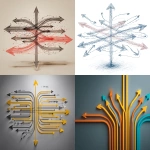
](https://images.ai-img.art/thumbnails/150/9bfac23b6df1e372ace320fda84e18e5e2e668451feacef8c46af60a9f444ad6.webp)












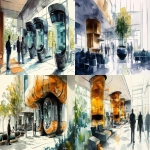





](https://images.ai-img.art/thumbnails/150/93f6b867d7e0d1ef5b08c9115efd6d3cbcc0fcfe07dc47e55d9b3a50056a189e.webp)


